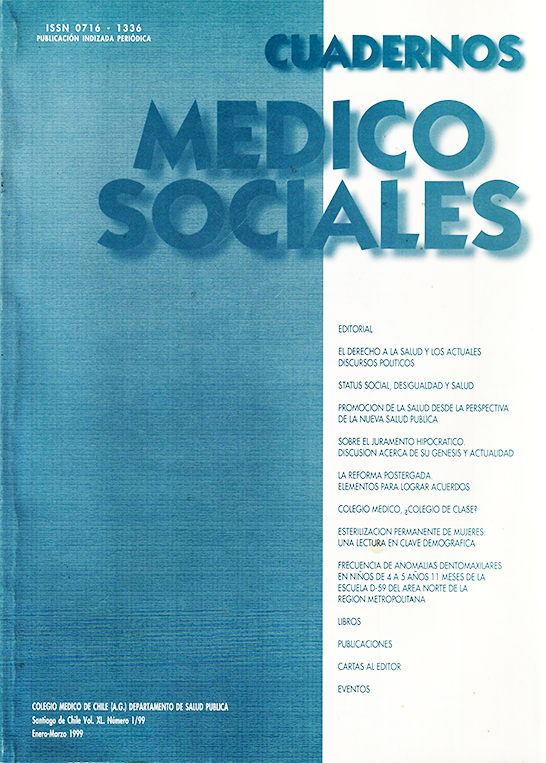Status social, desigualdad y salud
Keywords:
Inequidad socialAbstract
This paper shows evidences and hypothesis of how the psychosocial effects of low social status, relative deprivation, and income inequality are the main causes of health inequalities, regardless the role of the already known health determinants such as tobacco, housing, diet, etc. Studies in non-human primates show how social inferiority is a source of stress by itself, possibly being a product of evolution, to which humans beings are especially sensitive. Experiences of being humiliated, degraded, ignored, treated as non-adequate persons, strongly contrast with the effects of feelings of belonging to, of being respected and considered valuable. Violence and depression can be treated as indicators of how this balance in a specific society is. Chronic or acute stress, generated by the social environment can produce cumulative effects in health status along different periods of life. Earl y childhood experiences of low self-esteem, or low abilities to cope with social situations, could determine experiences of abnormal responses to stress, offering a model that can explain a general susceptibility to ill health in the affected persons, with similar charaeteristics of an accelerated ageing process. Quality of social environment is crucial to health: Epidemiology confirm the relationship of good health and social networks. There is an urgent need to defeat income inequalities, relative poverty, and unemployment: all of such conditions are humiliating messages of low social value, inferiority and segregation. Because income inequality is a measure of how hierarchical a society is, income inequality is highly associated with mortality rates. We need to reform our institutions, workplaces, schools, family relationships and communities. We need to replace structures that stigmatise people, that classify persons as inferiors, as valuing less than others, instead of that social fabric should promote mutual respect, belonging and a sense for living. That happens with social cohesion, and that is the reason why cohesive societies are much healthier than others do.
Downloads
Downloads
Published
How to Cite
Issue
Section
License

This work is licensed under a Creative Commons Attribution-NonCommercial-ShareAlike 4.0 International License.


